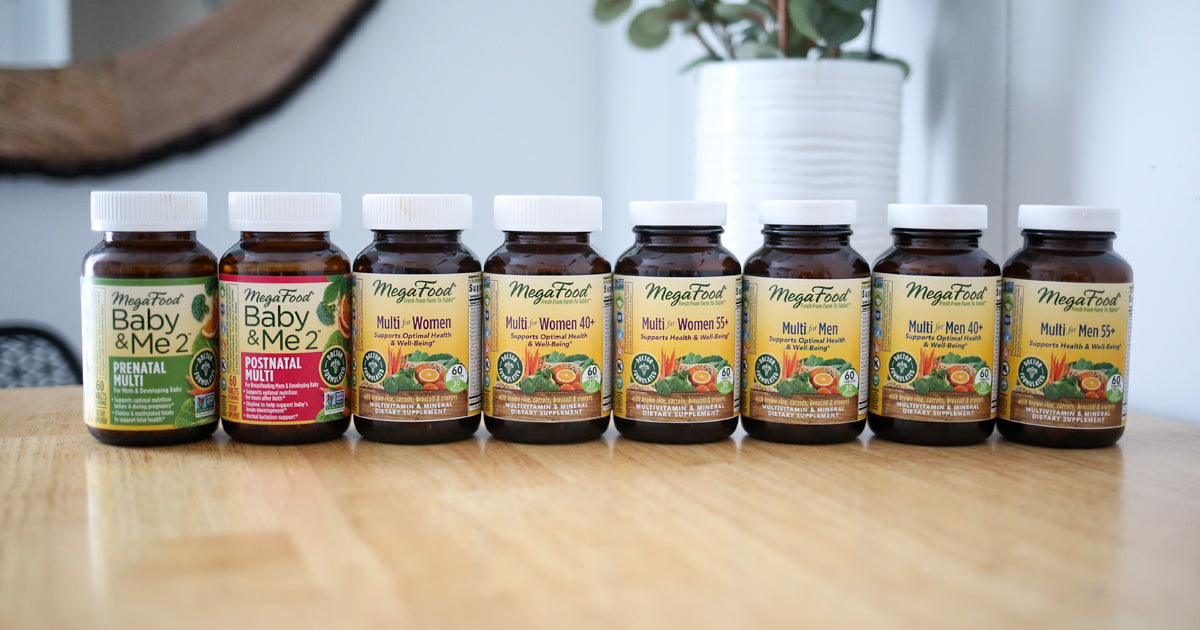Just plain tired, or adrenal fatigue? How to know the difference

MegaFood | March 2018
Many of us are so busy and stressed that we feel exhausted and depleted. But how can we tell if we’re just plain tired, or if it’s something more serious? We asked Erin Stokes, N.D., Medical Director at MegaFood, how to know if you might be suffering from adrenal fatigue, or even a nutrient deficiency.
Q: What is adrenal fatigue?
A more accurate term than adrenal fatigue is adrenal dysregulation. Adrenal dysregulation occurs when the HPA (hypothalamic pituitary adrenal) axis does not function properly, and this leads to an imbalance in cortisol levels. Usually what is happening is that the HPA axis is being continually activated (by stress/diet/lifestyle), which can result in chronically elevated cortisol levels. In a healthy state, cortisol has a natural circadian rhythm where it should be highest in the morning, decrease throughout the afternoon, and reach its lowest point around 11 p.m.
Q: What are the symptoms?
The symptoms of elevated cortisol can include insomnia, impaired cognition, decreased thyroid function, weight gain, and cardiovascular issues. On the other hand, one of the main symptoms of low cortisol is extreme fatigue. (Adrenal dysregulation can lead to high or low cortisol levels.)
Q: How do you know you’re not just tired or run down?
It’s ideal to work with a healthcare practitioner who can help rule out other conditions, such as a nutrient deficiency. Iron deficiency, for example can result in fatigue.
Q: Traditional medicine says adrenal fatigue doesn’t exist. Why is this, in your opinion?
It’s not surprising that adrenal fatigue is not a widely accepted diagnosis by medical doctors because the description of it tends to be non-specific. Additionally, there are degrees of adrenal dysregulation. You do not wake up one day and suddenly have adrenal issues. The symptoms are nonspecific and can be due to other factors, so this makes it difficult to diagnose.
Q: If you suspect you have it, what can you do?
One of the best things you can do is to take a look at stress in your life. What are the tangible steps that you can take for stress reduction? Often times people don’t take chronic stress seriously, and think that it’s something that they can deal with “later.” However, not dealing with stress now can lead to longer-term issues later.
Q: What are the best supplements to take if you have it?
A category of botanicals called “adaptogens” can help the body adapt to stress.
Ashwagandha is the best known and also the most widely investigated plant in Ayurvedic medicine. Today, it sits at the top of many holistic practitioners’ list of adaptogens, along with Rhodiola, Holy Basil and Schisandra.
Ashwagandha is one of the most versatile of the adaptogenic botanicals because it is uniquely suited to benefit many people. Plants each have their unique characteristics, just like the people who take them. Ashwagandha has broad-based characteristics that make it an excellent tonifying herb when taken on a daily basis to support both adrenal and overall health. I find its ability to strengthen the nervous system is unparalleled. In fact, in a recent study, people who were given Ashwagandha root extract showed a reduction in stress assessment scores and a significant reduction in serum cortisol levels after 60 days.
Don’t miss news and information about your health. Sign up for our email now.



Leave a comment
This site is protected by hCaptcha and the hCaptcha Privacy Policy and Terms of Service apply.